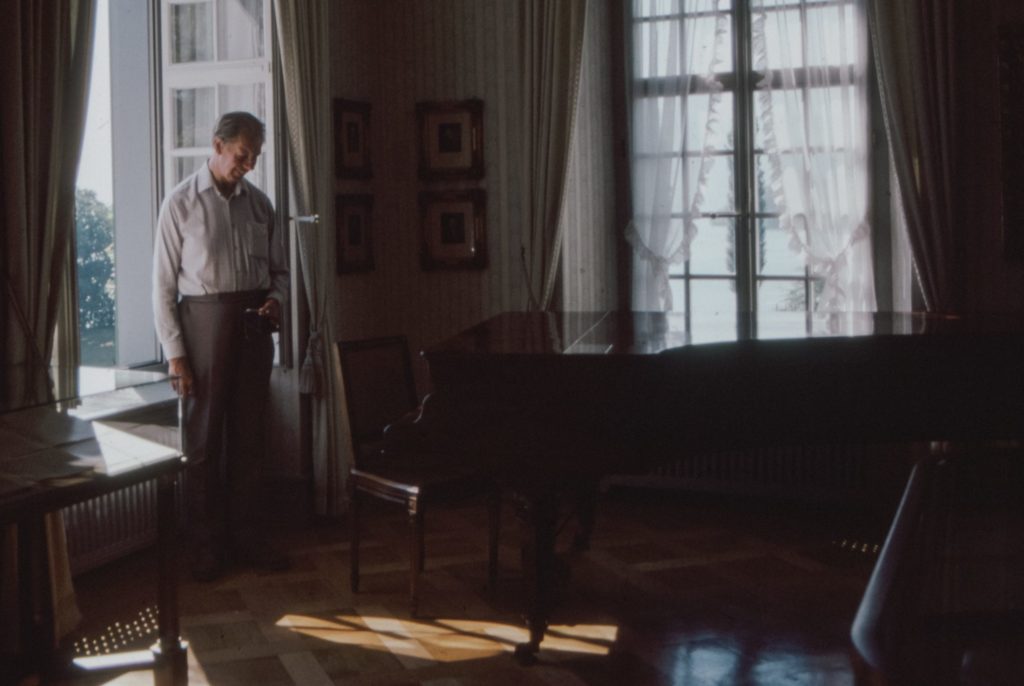Book Review: Home
I won’t presume to critique one of Marilynne Robinson’s novels. What I do want to review regarding “Home,” the second in her Gilead series, is myself as a reader.
I read “Home” for the first time the month it published, late summer 2008, which was also the summer after I finished creative writing graduate school. I was inflated with ideas of what fiction ought to be and full of doubt about whether I could emulate what fiction ought to be.
In that frame of mind, I read this quiet novel about two middle aged siblings reunited in different points of despair in their lives with a sense that there was something missing.
Where is the plot? I thought. The dialogue seems stilted. Jack keeps touching his face. He laughs when things are not funny.
And these supposed Christians in his family: why do they cast Jack into outer darkness? So he got a teenage girl pregnant…is that so unforgivable?
The first time I read this book, the good Boughton children—three strapping Christian boys and four girls named after spiritual virtues—seemed almost unbearably good. Good in the way 1950s television was good; a wholesome veneer that surely must be hiding something.

Only in this family, it wasn’t. Their fun was singing hymns ‘round the piano or playing baseball (the boys) or baking (the girls). I got angry at their distress over Jack stealing small things and cheating on tests. His sins were minor in comparison to some of the things my graduate school workshop friends had written about: incest, dog fighting, drug deals, addiction.
Unable to truly see where this castigation of Jack was leading and why he laughed so nervously all the time, I sped through “Home” and shelved my first edition. For years I declared that I simply enjoyed Robinson’s first novel, “Housekeeping,” much more.
“There’s something off about ‘Home,’” I said on several occasions.
Turns out the off thing was the reader. Which happens, right? The book is published. The words don’t change. We who experience the book do change: we grow, soften in some places, harden in others, gain patience. We go through life and—one of the magical effects of fiction—catch up in age and experience with the characters.
I read “Home” for the second time in October 2020. I was inspired to take it off the shelf hearing Marilynne Robinson speak during a live-stream program. I also learned that her newest novel, “Jack,” is now out to tell some of the back story of the Boughton black sheep. I badly want to know more about Jack, so I reread “Home” to remember him.
“Home” was a completely different novel to me the second time through.
Glory Boughton is back in the house where she grew up ostensibly to care for her aging father. Really, though, she is wounded from a breakup.
The breakup leads Glory to a midlife dead end: “I am thirty-eight years old, she would say to herself, as she tidied up after supper. I have a master’s degree. I taught high school English for thirteen years. I was a good teacher. What have I done with my life?”

The words ring refreshingly true to me, a 43 year old reader who could reconstruct that thought word for word with a few substitutions. That feeling of mid-journey despair is widely-felt but not so widely acknowledged.
The first time I read Glory’s predicament, I didn’t get it. I was 30 and I had a new MFA from the Iowa Writers’ Workshop. On the outside, anything was possible. And in my heart, I was terrified that I’d end up like Glory in ten years.
Then Jack comes home—or to the house in Gilead, Iowa “all the rest of them call home.” He’s hungover. He’s weeks late, upsetting his frail father terribly. He’s “lost” his suitcase.
What unfolds through the rest of the novel, culminating in a near-death experience (yes, there is a plot) is a summer-long friendship between two siblings who have not known each other as adults. Each struggles with her or his own personal despair. But little by little they share with each other things so painful they barely—in true Boughton “don’t say it” fashion—articulate them to themselves.
The bottom line with Jack: He’s an addict. He can’t trust himself to work any job that will pay him more than a bottle of liquor at any one time. Ever. He’s a permanent subsistence laborer.
But he’s in love. He’s married. And he has a son. And he lives in a time and place—1960s America—when it’s socially unacceptable in most places and even illegal in some to live with his wife because she is Black.
He’s tried to better himself for the sake of his family (that’s why he’s in Gilead) but he fails over and over. The surface charm and that nervous laugh are deep habits of hiding. The family Grendel, he’s spent a lifetime hovering just outside the circle of light. But something existential—his family’s equally strong habit of putting a happy face on everything, perhaps—keeps him from entering. Ever.
And the bottom line with Glory: She’s been formed by her family’s faith—and faithful habits. She reads chapters of the Bible every day without really taking them in. Her family prepared her for a blessed life—not for heartbreak. Her parents and older siblings pointedly do not speak about things that are unpleasant, so she’s also in the deep habit of hiding pain, even from herself.
Her breakup is so ruinous to her that even her close third-person narration won’t admit the facts to itself clearly until nearly the end of the book. Any paragraph that touches on “him” or “the letters” skims around and springs back as if the material is too hot to touch.
By the end of the novel, after weeks of healing dialogue with Jack, Glory is strong enough to admit the facts to herself: she was engaged; the guy was not that serious and seemed to need money from her. She’d hinted to her family that they’d gotten married by a justice of the peace; but really, they’d never been married. This legal point is Glory’s salvation back in Gilead.
“If she spoke discreetly to the high school principal about the fact that the marriage she intended had not in fact taken place, the information would pass through town and be absorbed and cease to be of particular interest. She could start teaching again.”
Glory is as locked in place as Jack is locked out by Gilead’s rigid Christian mores.
There are moments of love and glimmers of hope. The most poignant to me are when Jack plays the piano and sings, apparently quite well, for his father. Music has a way of transcending the logic of theology.
Another comes in the last scene. After Jack has gone away for the last time, three visitors appear, looking for him. Glory receives them with love. This scene of surprise, disappointment and connection redeems the rest of the book. Jack is off wandering again—no phone number, no address—but the time he and Glory spent together did change them both for the good.
The last scene of “Home” has a “here we go again” quality to it—but it’s “here we go again, but a little different.” And at the end of a subtle, utterly honest novel like Marilynne Robinson’s, that’s all you need.